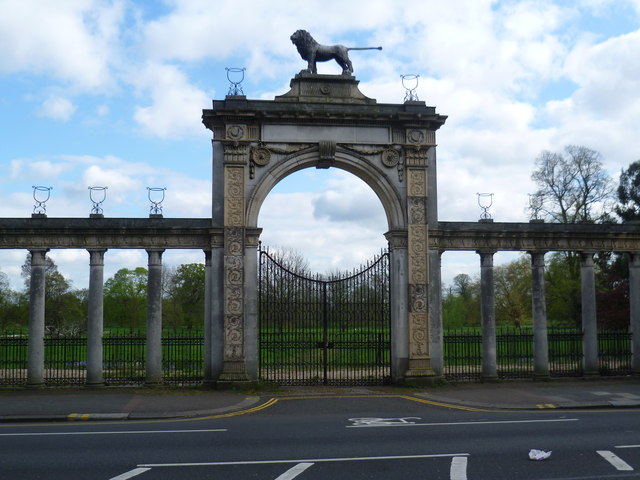The Screen at Syon House
Introduction
The photograph on this page of The Screen at Syon House by Marathon as part of the Geograph project.
The Geograph project started in 2005 with the aim of publishing, organising and preserving representative images for every square kilometre of Great Britain, Ireland and the Isle of Man.
There are currently over 7.5m images from over 14,400 individuals and you can help contribute to the project by visiting https://www.geograph.org.uk

Image: © Marathon Taken: 22 Apr 2015
Syon was named after Mount Zion in the Holy Land. It was founded by King Henry V in 1415 and was one of the last great abbeys to be built. Syon was dissolved by King Henry VIII in 1539. Syon House was built between 1547 and 1552 in the Italian Renaissance style, over the foundations of the west end of the Abbey church, which had been the size of a cathedral. In the mid 18th century, the first Duke and Duchess of Northumberland were determined to make their mark on Syon Park and they completely redesigned the estate. The Scottish architect, Robert Adam was instructed to remodel the interior of Syon House and the Northumbrian designer, Lancelot ‘Capability’ Brown, to lay out the grounds in the fashionable style of the English Landscape Movement. This included the lake seen here. Syon House and its 200 acre park is still the London home of the Duke of Northumberland, whose family have now lived here for over 400 years. This is The Screen seen across London Road. The entrance arch supports a Northumberland Lion and was designed by Adam. It was built in 1773.

